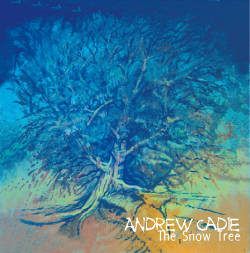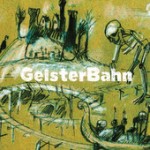Here are some selected projects and CDs Andrew Cadie has worked on. To buy CDs, go to shop page.
Half-Witted, Merry & Mad – Fiddle CD

Lone fiddler Andrew Cadie breathes life back in to forgotten gems on a bold new album of traditional Northumbrian music.
Sometime in the 19th Century, Newcastle Society of Antiquities came in to the possession of a dusty old manuscript containing fiddle and pipes tunes. An elusive local figure called William Vickers had noted down almost 600 melodies between 1770 and 1772, in what seems to have been a concerted effort to collect tunes that were circulating in the area at the time.
250 years later, Andrew Cadie has decided to make an album of some of these tunes, arranging them for unaccompanied fiddle.
Wonderfully weird modal jigs, ancient reels, songlike airs and rolling triple-time hornpipes keep surprising the ear. William Vickers was obviously surrounded by Northumbrian tunes that were considered ancient even at the time, but he also documents how people in the 18th century were already moving around and trading melodies. There’s a strong Scottish contingent as well as some of the earliest records of tunes now considered Irish classics. Several southern English country dance tunes make an appearance and even some German and French examples crop up.
The Snow Tree – CD
The Snow Tree is Andrew Cadie’s solo CD from 2006.
“He’s a musician with an ear for a finely tuned melody – his playing is both sensitive and crafted, and the album’s a grower. These soulful, evocative, lyrically convincing songs sit very comfortably within the English folk genre.” –The Living Tradition
“This is a great album” – Irish Music Magazine
“A very pleasing record” – fRoots
“A solid collection of songs and tunes” – Dirty Linen
“Die CD klingt von vorne bis hinten stimmig und überzeugend. Von Andrew Cadie werden wir noch viel hören. Wetten?” – Folker
GeisterBahn – CD and Live Project
After 10 years living and playing folk music in Germany, Andrew Cadie decided it was time to get together a rabble of fellow musicians and go on the trail of German folk songs. Although German songs are not completely forgotten, it appears that folk songs from the British Isles seem to be more widely sung in Germany than the indigenous ones.


